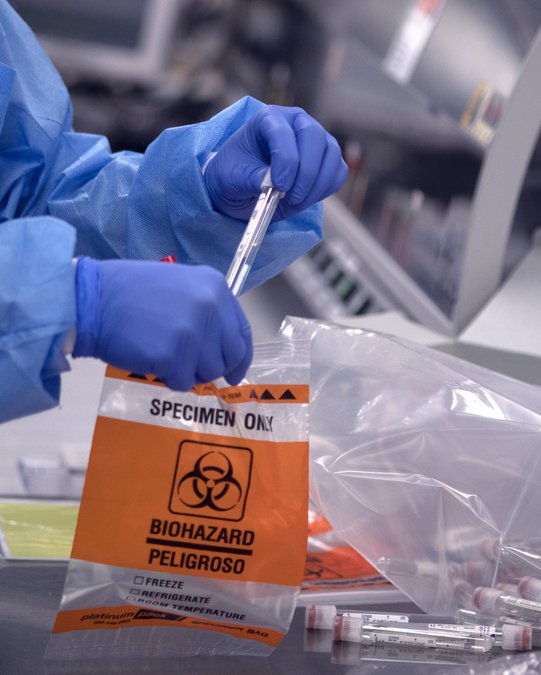The Northeast Georgia Health System is sponsoring coverage directly related to public safety so that it can be made available free to non-subscribers as a public service. News coverage is independently reported. We know that you need accurate and up-to-date information about the effects of the coronavirus in the state and our region. Please consider supporting our work by subscribing to The Times.
The Georgia Department of Public Health has identified 19 cases of the new COVID-19 variant, B. 1. 1. 7., which the agency said is expected to be the dominant strain by sometime next month.
In the Monday news release, health officials explained that this is the same variant found in the U.K., U.S. and several other countries. The first identified case in Georgia was reported by the DPH earlier this year.
Officials noted that the B. 1. 1. 7 cases in Georgia involve eight males and 11 females, ranging from 15 to 61 years old. They all live in metro Atlanta, including Carroll, Cherokee, Clayton, Cobb, DeKalb, Douglas, Fulton, Gwinnett and Paulding counties.
“The CDC has said this U.K. variant is likely to be the dominant strain in the U.S. by sometime in March,” DPH Commissioner Kathleen E. Toomey stated in the release. “We must ensure we are taking every precaution right now to prevent transmission of COVID and to avoid a surge in hospitalizations and loss of life.”
DPH shared that the Georgia Public Health Laboratory and several commercial labs are working to confirm the variant’s presence in “hundreds of specimens collected at Georgia testing locations statewide.” However, this is only a small percentage of the COVID-19 tests performed in the state.
“Knowing the location of a few individual cases does not provide a clear picture of where this variant is in the state,” the release added. “Just because it has not been identified in a particular city or county does not mean it is not there — individuals could be infected anywhere in the state, or in some cases out of state.”
The DPH stated that information about the variant continues to evolve quickly, and preliminary epidemiologic information suggests that it is more contagious than what people have seen with COVID-19 and “may increase the risk of death in those who become infected.”
Pfizer and Moderna pharmaceutical companies have reported that their COVID-19 vaccines work successfully against B. 1. 1. 7.
Dr. Supriya Mannepalli, Northeast Georgia Medical Center’s medical director of infectious disease medicine, spoke to The Times in late January about the nature of the variant and explained that doctors treat it the same way they do with the original COVID-19. The medical director said she has not seen reports about different symptoms among those with B. 1.1. 7.
NGHS has meanwhile witnessed a trend downward in COVID-19 patients in recent days. As of Feb. 1, the system has 237 patients being treated for the virus, 61 fewer than a week ago, and 118 fewer than on Jan. 8, when the health system set its peak for patients with the virus.
Mannepalli told The Times Monday, Feb. 1, that this decline can likely be attributed to the end of holiday gatherings and people returning to daily activities limited to their household members.
She called it "unlikely" that the decrease could be attributed to vaccinations.
“Remember, two doses are necessary, and it takes two weeks from the time of the second dose to develop full immunity," Mannepalli said. "Right now, only those who received their first vaccine dose in the first week and then received their second dose on time have full immunity."
She said every administered dose of the vaccine moves the area in the right direction, but COVID-19 cases still remain “significantly higher than they were at peak in July.”
“It is going to remain important that we continue to wear masks, wash our hands and watch our distance for quite some time,” Mannepalli said.
She added, however, that NGHS is encouraged by the drop in percentage of positive COVID-19 tests and the number of positive patients in the system’s hospitals. Monday's 14.5% positive rate for tests returned in the last two weeks in Hall pales in comparison to the upper-20s percentage that had been reported during virus peaks in the county. That data is reported daily by the Georgia Department of Public Health.
For more information about COVID-19, visit nghs.com/covid-19/latest-covid-19-data, dph.georgia.gov/novelcoronavirus or cdc.gov/coronavirus/2019-ncov.
